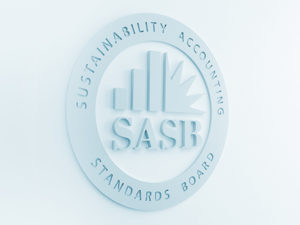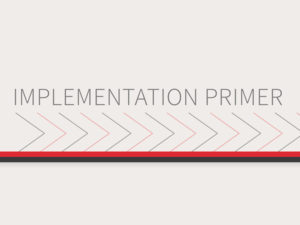Co-Authored by Janine Guillot and Maha Eltobgy. Janine Guillot is CEO of SASB. Maha Eltobgy is Head of Shaping the Future of Investing and a member of the Executive Committee at the World Economic Forum.
When the challenges we face transcend international boundaries, so must the solutions we design. In the wake of Covid-19, the value of internationally coordinated effort has never been clearer. But the world doesn’t have to wait for an unprecedented crisis or rely solely on government action to pursue global innovation. An ounce of prevention, as they say, is worth a pound of cure.
This is why both the Sustainability Accounting Standards Board (SASB) and the World Economic Forum (WEF) support efforts to establish a globally accepted system for corporate disclosure that includes key sustainability information and traditional financial information. For too long, markets around the world have been ill-equipped to efficiently price the risks and opportunities related to our shared social and environmental challenges, from climate change and resource constraints to economic inequality and racial injustice. As Covid-19 has made painfully clear, our social and economic systems are deeply intertwined, and one can’t thrive for long when the other is weakened.
However, in the absence of consistent, comparable, reliable sustainability information, the investors around the world who collectively allocate tens of trillions of dollars are effectively aiming for that money’s highest and best use with one eye closed. A coherent, comprehensive system of corporate disclosure—including both financial and sustainability information—would provide important new insights into the vital interconnections between business and the world in which it operates.
Today, the work being considered by the IFRS Foundation is the most promising initiative to advance our common vision. The Foundation, which oversees the International Accounting Standards Board (IASB)—whose financial accounting standards are generally accepted in more than 140 countries—has proposed the creation of a Sustainability Standards Board to improve the global consistency and comparability of sustainability disclosure. Importantly, in undertaking this work, the Foundation has noted the importance of “building upon existing initiatives,” leveraging the many years of work others have done—and the ample expertise they have developed—to help achieve global consistency and reduced complexity.
As representatives of two of those existing initiatives—and active collaborators with many others—we welcome the potential for the IFRS Foundation to catalyze crucial progress in a field where progress is the name of the game. For years, the prevailing narrative has been that too many competing standards, frameworks and initiatives —including our own, according to some critics—have kept markets from moving forward. We agree that confusion and perceptions of competition are a barrier to progress. To be perfectly clear about our own work: the industry-agnostic metrics and disclosures included in the “Measuring Stakeholder Capitalism” report produced by WEF’s International Business Council (IBC) and SASB’s 77 industry-specific Standards are complementary. The WEF’s metrics are not intended to replace SASB disclosures for communication to investors.
We believe both our efforts, alongside those of the other leading sustainability and integrated reporting organisations as well as TCFD, can serve as useful, market-led inputs into a future global system for corporate disclosure. SASB’s industry-specific Standards provide global capital markets with consistent, comparable, reliable information about the sustainability risks and opportunities most closely associated with a company’s ability to create enterprise value. The Standards have broad support among global investors, who value their industry-specificity, focus on financial materiality, and rigorous, inclusive due process, which is rooted in a robust Conceptual Framework.
Meanwhile, the WEF’s “Stakeholder Capitalism Metrics” can help demonstrate performance to both investors and a broader set of stakeholders, providing internationally consistent reporting on key issues that cut across industries. The metrics reflect the perspective of global CEOs about the issues they believe are most relevant to achieving the Sustainable Development Goals and creating long-term value for their shareholders. The World Economic Forum and the CEOs who champion this initiative do not aspire to “reinvent the wheel”; rather, they have drawn on existing frameworks and standards (including TCFD for climate risk). In curating these disclosures, the metrics and disclosures serve as a conduit for the CEO’s of the world’s largest companies to share their view of how the private sector can contribute to sustainable, long-term development.
Together, the SASB Standards and WEF’s metrics can help companies provide a holistic view of their value creation story, incorporating both an inside-out perspective—capturing a company’s impacts on the environment, society, and economy—as well as an outside-in perspective—measuring the impacts of environmental, social, and macroeconomic trends on the company. Markets increasingly recognise that the two are not mutually exclusive, a fact that becomes increasingly clear over longer time horizons as the interests of business and those of broader society converge.
Collectively, we share the conviction that companies need useful tools for measuring and communicating sustainable value creation. Together, we will continue to pursue cooperation in our efforts and strengthen alignment among our objectives. Far from competing, our work is guided by the same north star: accelerating the establishment of a globally accepted, coherent system for comprehensive corporate disclosure. To move markets toward a more sustainable and resilient future, now is the time to transform our individual ambitions into collective action.
A version of this article was originally published on the World Economic Forum website.



